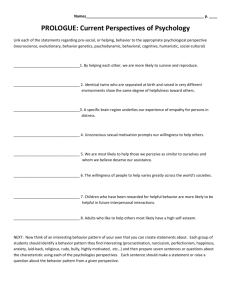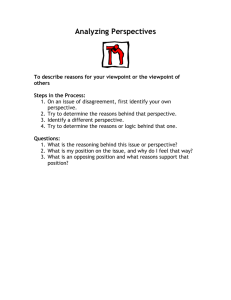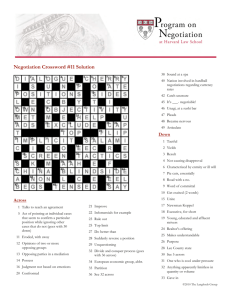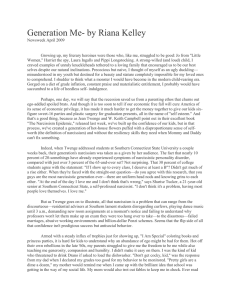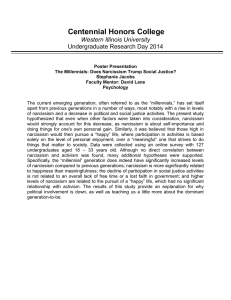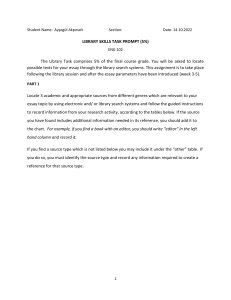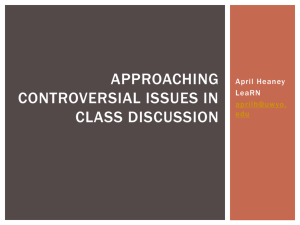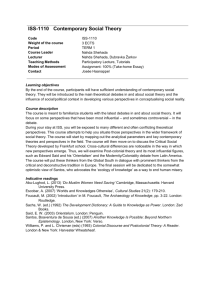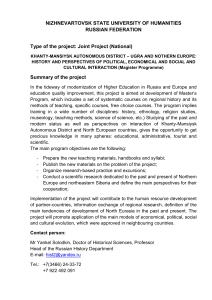ERF 11-13-2014- Writing (Mirror, mirror…)
advertisement
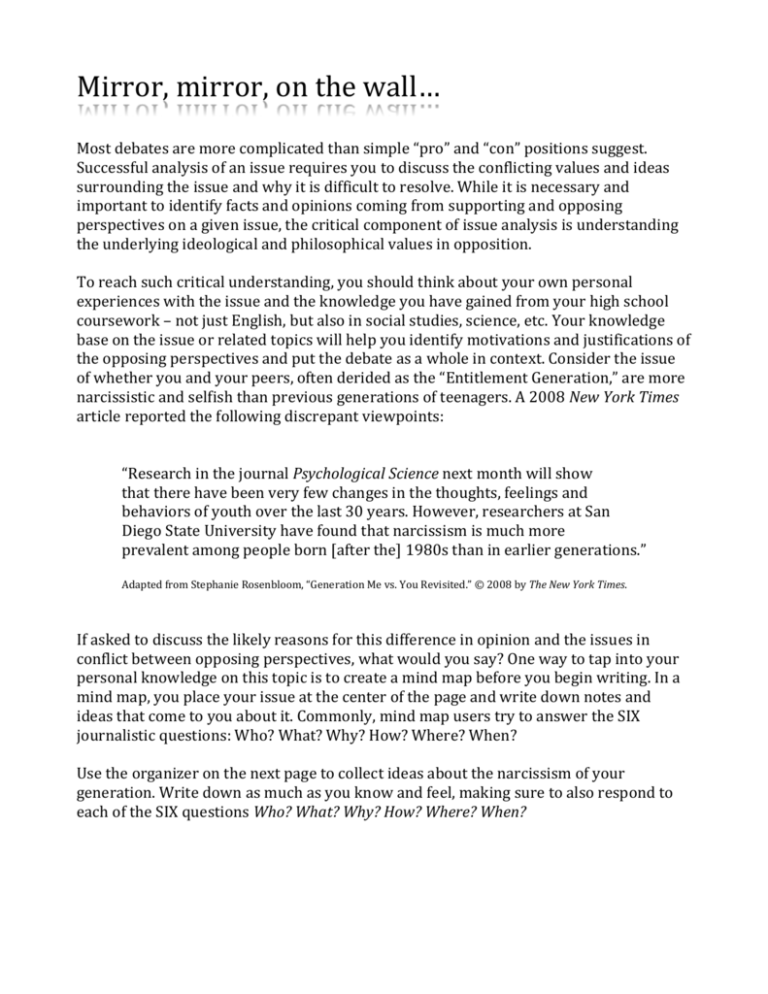
Mirror, mirror, on the wall… Most debates are more complicated than simple “pro” and “con” positions suggest. Successful analysis of an issue requires you to discuss the conflicting values and ideas surrounding the issue and why it is difficult to resolve. While it is necessary and important to identify facts and opinions coming from supporting and opposing perspectives on a given issue, the critical component of issue analysis is understanding the underlying ideological and philosophical values in opposition. To reach such critical understanding, you should think about your own personal experiences with the issue and the knowledge you have gained from your high school coursework – not just English, but also in social studies, science, etc. Your knowledge base on the issue or related topics will help you identify motivations and justifications of the opposing perspectives and put the debate as a whole in context. Consider the issue of whether you and your peers, often derided as the “Entitlement Generation,” are more narcissistic and selfish than previous generations of teenagers. A 2008 New York Times article reported the following discrepant viewpoints: “Research in the journal Psychological Science next month will show that there have been very few changes in the thoughts, feelings and behaviors of youth over the last 30 years. However, researchers at San Diego State University have found that narcissism is much more prevalent among people born [after the] 1980s than in earlier generations.” Adapted from Stephanie Rosenbloom, “Generation Me vs. You Revisited.” © 2008 by The New York Times. If asked to discuss the likely reasons for this difference in opinion and the issues in conflict between opposing perspectives, what would you say? One way to tap into your personal knowledge on this topic is to create a mind map before you begin writing. In a mind map, you place your issue at the center of the page and write down notes and ideas that come to you about it. Commonly, mind map users try to answer the SIX journalistic questions: Who? What? Why? How? Where? When? Use the organizer on the next page to collect ideas about the narcissism of your generation. Write down as much as you know and feel, making sure to also respond to each of the SIX questions Who? What? Why? How? Where? When? Name:
